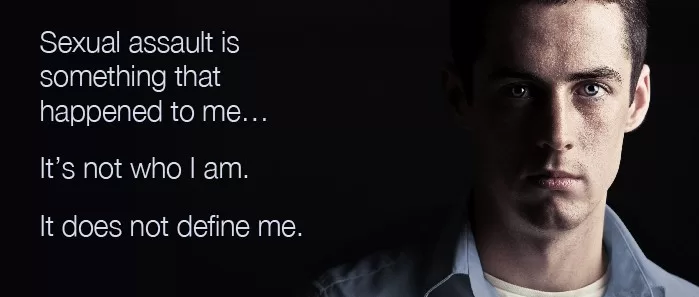Men
In contemporary society, the sexual violence perpetrated against males is often denied, misunderstood and trivialized. This has much to do with the stereotypes and myths about being a male and the possibility of being sexually abused by either a male or female. This can leave male victims struggling in silence, secrecy and shame.
Statistics and Facts
- Research indicates that between 1 in 6 and 1 in 10 males were victims of sexual violence before the age of 15.
- 5.5% of men reported experiencing sexual violence after the age of 15, compared to 19% of women
- Males constitute up to 30% of confirmed reports of child sexual abuse.
- 80% of the reports of male child sexual abuse is perpetrated by other males and 20% perpetrated by females.
- Most of the sexual violence is perpetrated by someone who is known by the victim, such as: family member, family friend, neightbour, teacher, clergy and etc.
- The risk of suffering from sexual violence escalates if the boy:
- Has a disability;
- Is a runaway;
- Is subjected to other forms of maltreatment at home;
- Spends time in an institutional setting;
- Is indigenous
- Between 70-90% of males who have been sexually abused report not telling anyone at the time.
- Males disclose being sexually abused in childhood on average 22 years after the assault.
Barriers to Disclosure
- Stigma associated with being sexually abused;
- Power exercised by those perpetrating abuse through threats, coercion, apportion of blame;
- Silencing effects of fear, confusion and shame;
- Dominant masculine stereotypes;
- Ideas that men should be powerful, strong, able to protect themselves against overwhelming odds, be self reliant, not acknowledge weakness, or be unable to cope;
- Homophobia, questioning of sexuality (Concern that he will be considered ‘homosexual’ or ‘gay’ and treated negatively);
- The idea that males who have been sexually victimised ‘automatically’ go on to perpetrate abuse. (Research shows otherwise).
Common Symptoms and Consequences
- Depression/Anxiety;
- Flashbacks and Intrusive Thoughts;
- Nightmares;
- Unusual Anger or Sadness;
- Overwhelming emotions;
- Decreased appetite & weight loss;
- Suicidal or Self-Harm ideation;
- Post Traumatic Stress Disorder (PTSD);
- Sexual Difficulties;
- Sleeping disturbances;
- Physical or Mental Health Problems;
- Substance Abuse (alcohol and drugs);
- Struggles with Intimate Relationships;
- Work Related Issues;
- Revengeful Thoughts.
Break the Silence! Get help!
Many males who have experienced sexual violence find that talking with a counsellor can be helpful. Asking for help can sometimes be a scary thing to do. We know it might feel like a big step, however it is extremelly important to seek help if things aren’t going well. Counsellors are there to work with you to find ways of dealing with your problems and improving your life.
In counselling, you do not have to talk about the details of what happened if you don’t want to. Counselling provides an opportunity to look at the impact sexual abuse has had-or is having-on your life in a safe supportive environment.
For more information please contact us.

Source: https://www.livingwell.org.au/
